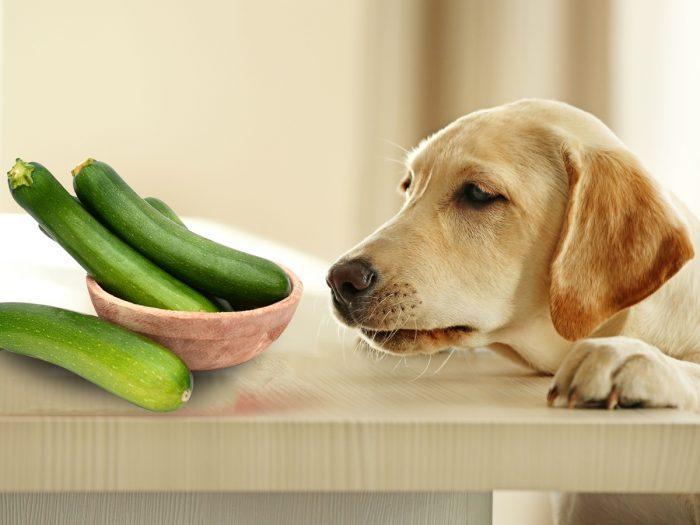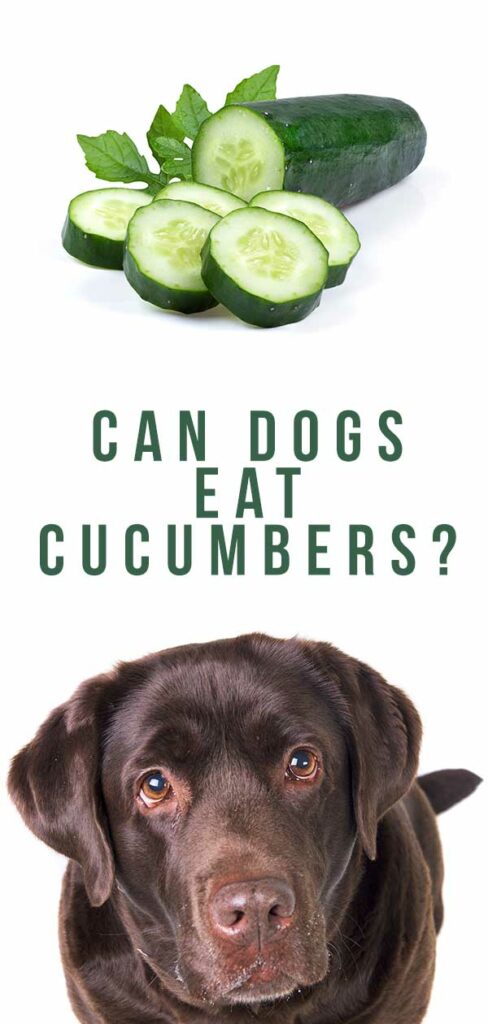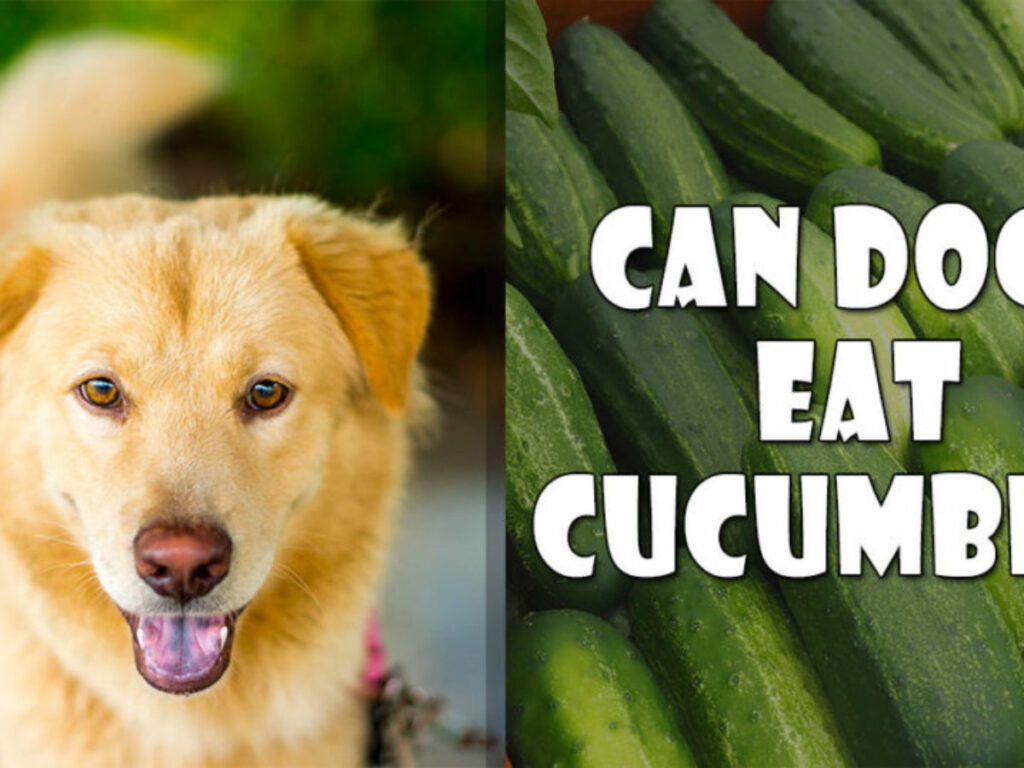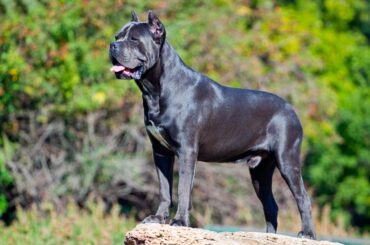Yes, Dog Eat Cucumber and as part of a balanced diet. Cucumbers are generally safe for dogs and can provide them with hydration, vitamins, and minerals. They are low in calories and contain a good amount of water, making them a refreshing and healthy snack for dogs. 
However, there are a few things to keep in mind for Dog Eat Cucumber:
- Peel and remove the seeds: The skin of the cucumber can be difficult for dogs to digest, so it’s best to peel it before feeding it to your dog. Additionally, the seeds can sometimes cause digestive issues, so it’s advisable to remove them as well.
- Cut into small, bite-sized pieces: To prevent choking, it’s important to cut the cucumber into small, manageable pieces that your dog can easily chew.
- Feed in moderation: While cucumbers are generally safe for dogs, they should be given in moderation as part of a balanced diet. Too much cucumber can lead to digestive upset or diarrhea in some dogs.
- Monitor for any adverse reactions: Every dog is different, so it’s important to monitor your dog after introducing cucumbers into their diet. If you notice any signs of digestive upset, such as vomiting, diarrhea, or changes in appetite, it’s best to discontinue feeding cucumbers and consult your veterinarian.
Remember that treats like cucumbers should never replace a nutritious and balanced diet specifically formulated for dogs. If you have any concerns or questions about your dog’s diet, it’s always a good idea to consult with your veterinarian for personalized advice.
Benefits of Cucumbers for Dogs – Dog Eat Cucumber
Cucumbers can provide several potential benefits for dogs when incorporated into their diet in moderation. Here are some of the potential benefits of cucumbers for dogs; Dog Eat Cucumber:
- Hydration: Yes Dog Eat Cucumber because Cucumbers have a high water content, which can help keep your dog hydrated, especially during hot weather or after physical activity.
- Low in calories: Dog Eat Cucumber because Cucumbers are low in calories and can be a healthy alternative to higher-calorie treats. They can help prevent excessive weight gain or aid in weight loss if your dog needs to shed a few pounds.
- Fiber: Dog Eat Cucumber because Cucumbers contain dietary fiber, which can contribute to digestive health. It can promote regular bowel movements and prevent constipation.
- Vitamins and minerals: Cucumbers are a good source of various vitamins and minerals, including vitamins K, C, and B1, as well as potassium and magnesium. These nutrients can support your dog’s overall health and well-being.
- Dental health: Chewing on cucumber slices can help promote dental health in dogs. The crunchiness of cucumbers can help remove plaque and tartar buildup from their teeth, thus supporting oral hygiene.
- Antioxidants: Cucumbers contain antioxidants, such as beta-carotene and flavonoids, which can help protect your dog’s cells from damage caused by free radicals.
- Weight management: Due to their high water content and low-calorie nature, cucumbers can be a valuable addition to a weight management plan for dogs. They can be used as a healthy, low-calorie snack to help your dog feel full without consuming excessive calories.
Despite these benefits, it’s important to remember that every dog is unique, and individual sensitivities or allergies may exist. As with introducing any new food, it’s advisable to start with small quantities and observe your dog for any adverse reactions. If you have concerns about your dog’s diet or specific health conditions, it’s always a good idea to consult with a veterinarian before making any significant changes.
Dangers of Cucumbers for Dogs
Cucumbers themselves are not considered toxic to dogs, and they can be a healthy snack in moderation. However, there are a few potential dangers to consider:
- Choking Hazard: If the cucumber pieces are not cut into small, manageable sizes, there is a risk of choking, especially for small dogs or those prone to gulping their food. Always ensure that the cucumber slices or chunks are appropriate for your dog’s size.
- Digestive Issues: Feeding large amounts of cucumbers to dogs can lead to digestive upset, including diarrhea or an upset stomach. Introduce cucumbers gradually and in small quantities to monitor your dog’s reaction.
- Pesticides and Contaminants: If you’re feeding your dog cucumbers from your garden or store-bought ones, be cautious about potential pesticide residues or contaminants. Always wash the cucumbers thoroughly to minimize the risk.
- Allergic Reactions: While rare, some dogs may be allergic to cucumbers. Watch for signs of an allergic reaction, such as itching, hives, swelling, or difficulty breathing. If you notice any of these symptoms, discontinue feeding cucumbers and consult your veterinarian.
- Pickled or Seasoned Cucumbers: Avoid giving your dog pickled cucumbers or cucumbers seasoned with spices or dressings, as these can contain ingredients harmful to dogs, such as onions or garlic.
As with any new food, it’s best to introduce cucumbers slowly into your dog’s diet and observe their response. If you have any concerns or questions about your dog’s specific dietary needs or health conditions, it’s always recommended to consult with your veterinarian.
Read Also:
- Can Dogs Eat Mango? 4 Complete Benefits of Mangos for Dogs
- Can Dogs Eat Celery? 6 Exquisite Benefits of Celery for Dogs
- Can Dogs Eat Pineapple? 5 Benefits of Pineapple for Dogs | PetsWealth
Summary why Dog Should Eat Cucumber
In summary, cucumbers can be a healthy addition to your dog’s diet when served in moderation and prepared appropriately. However, it’s always a good idea to consult with your veterinarian before introducing any new food into your dog’s diet, especially if your dog has any pre-existing health conditions or dietary restrictions.




